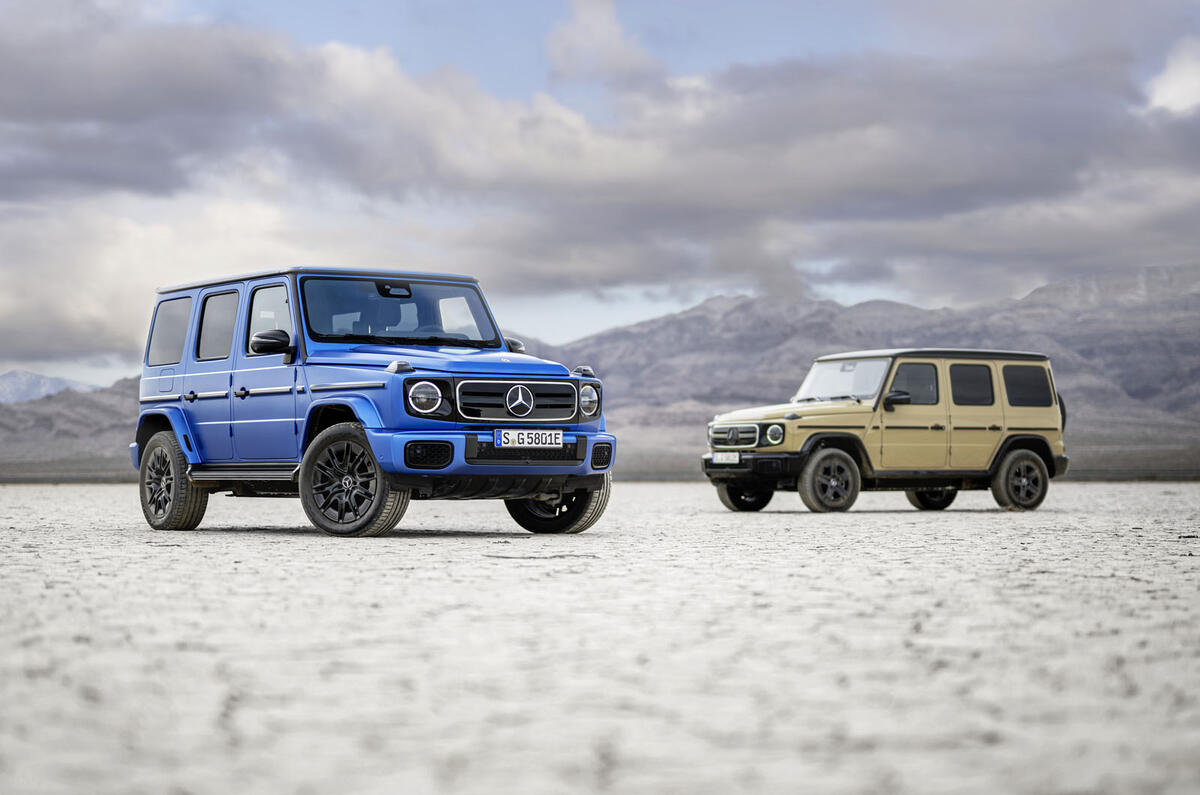Mercedes-Benz is prepared to invest in and develop different architectures for combustion and electric models for as long as there is demand for both, CEO Ola Källenius has confirmed.
Speaking to Autocar, Källenius said that Mercedes must offer models “without compromise” on equipment levels, space, technology or performance - and the only way to do this is to offer bespoke architectures.
He pointed to the next S-Class, due in late 2028, as an example of this, saying it would be impossible to ensure the right performance levels and interior space in converting an ICE model to an EV or vice versa.
"If you don't believe that the market is 100% electric at that point, you have to have the choice for both," he said. "You need to offer the electric and the high-tech electrified ICE version without compromise.
"The only solution that we think is viable in that scenario is that you have two platforms.
"The packaging advantages on the electric one are so obvious. If you put a combustion engine car into an electric car, you sacrifice space that you wouldn't want to.
"Then, we've worked for 100 years plus in perfecting the combustion car.
"If you take a luxury saloon like the S-Class, it's the best packaged car in the world. How you sit in the back seat, it is the benchmark, full stop. And we don't think the customers would accept going backwards on that.
"The customer comes first in this equation, and he or she is the true winner here. It's going to be the best of times for Mercedes customers in the next 10 years."
Källenius admitted that "investing in two versions puts some burden on your investment" but "if you do it in an intelligent way, the marginal additional investment can be kept on a manageable level, and that's what we're trying to do".
To that end, anything that isn't related to the powertrain, its packaging and the electronic architecture to support it will be made as common as possible between the two models.
Indeed, the physical traditional hardware architecture is no longer the biggest investment in a car; instead it's the electronic architecture and software.
The convergence of Mercedes's EV and ICE model lines has “already started”, said Källenius, with the new electric G-Class being called the G580 rather than the EQG, and this will continue in the future as the EQ sub-brand is phased out.
Källenius said that this wasn't a rowing back on a commitment to EVs but in fact quite the opposite. Mercedes' commitment to go all-electric was always qualified with a "where market conditions allow" clause, and those conditions aren't there yet and won't be for the foreseeable future.
Källenius admitted that he has been surprised by the slow level of uptake of EVs. Projections five years ago, at the start of Mercedes' EV roll-out, were that it would have around a quarter of its sales as EVs by now, but the market is less than half that.
Mercedes has already invested in all-new generations of all its combustion engine ranges, to ready them for the Euro 7 emissions regulations and hybridise them.








Join the debate
Add your comment
"The S class is the best packaged car in the world" Nonsense if it was transverse engined, you could stick the engine further forward and have more cabin space. Its got a 550l boot, that is barely bigger than my Peugeot 308.
Switching to EV power could be a generational thing, my Wife isn't totally convinced by going EV, she sees too many problems , myself, I'm fifty fifty,and I don't see EV in the future being the only source of motive power for our vehicles because I think it would be prudent to have an alternative in certain parts of the country and globally for that matter.
Global adoption of EV is decades away, infrastructure and power generation simply dont exist in many parts of the world for it.